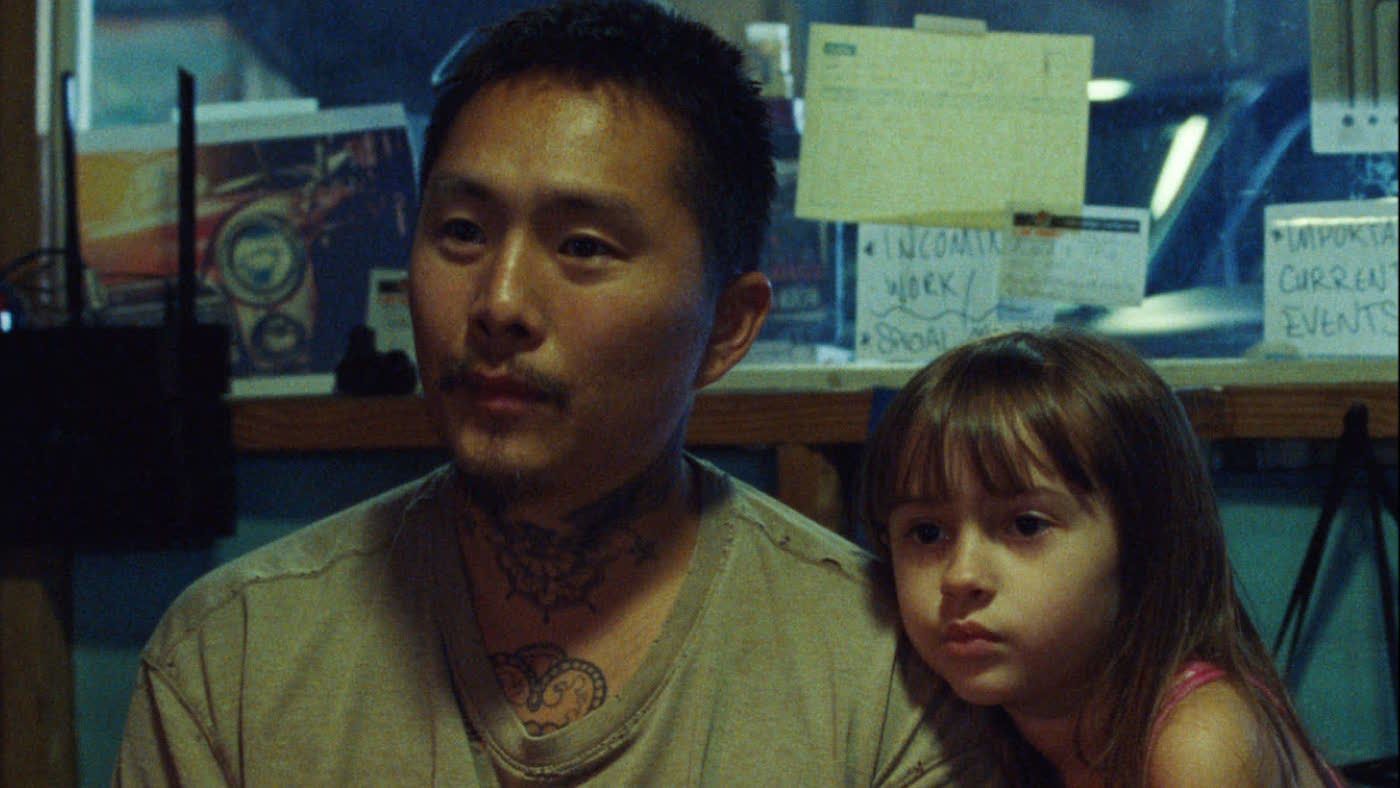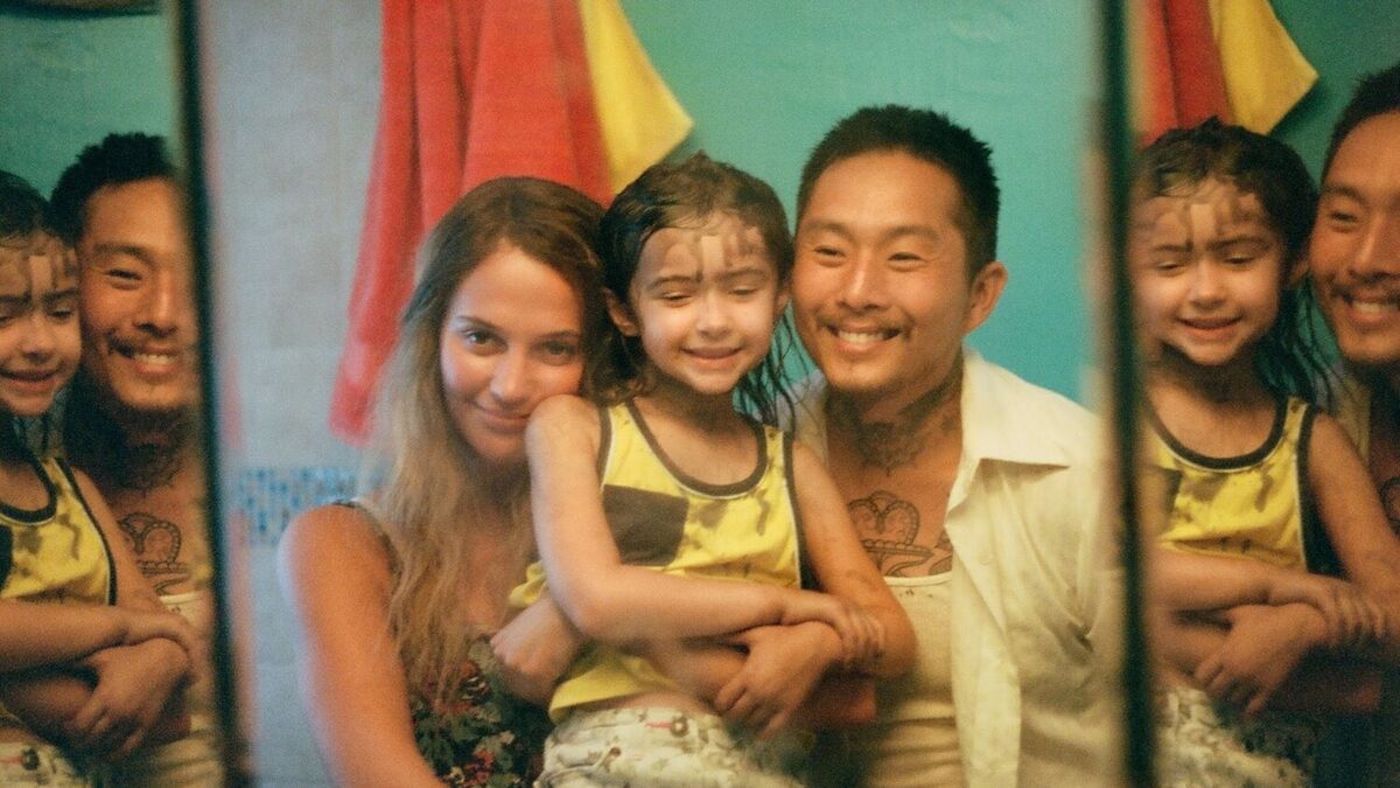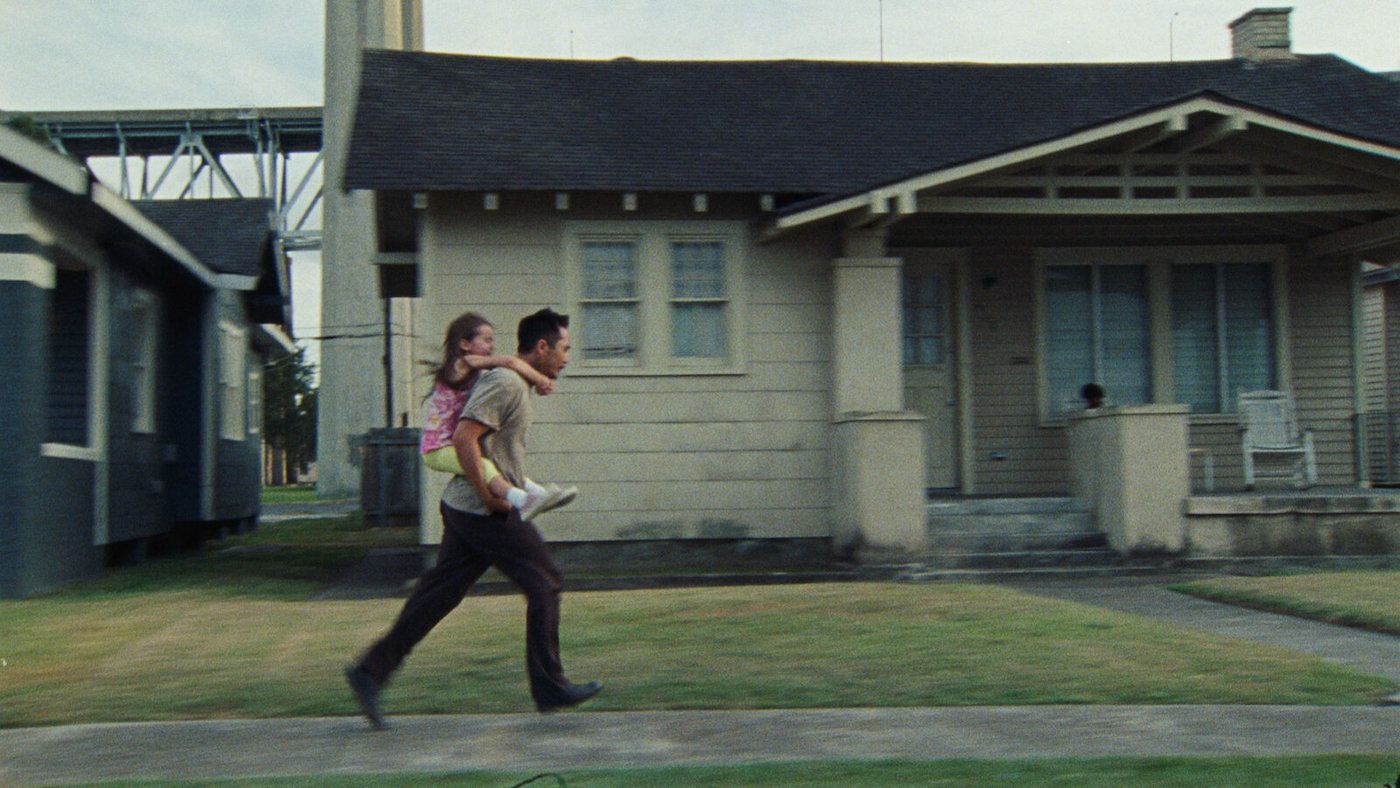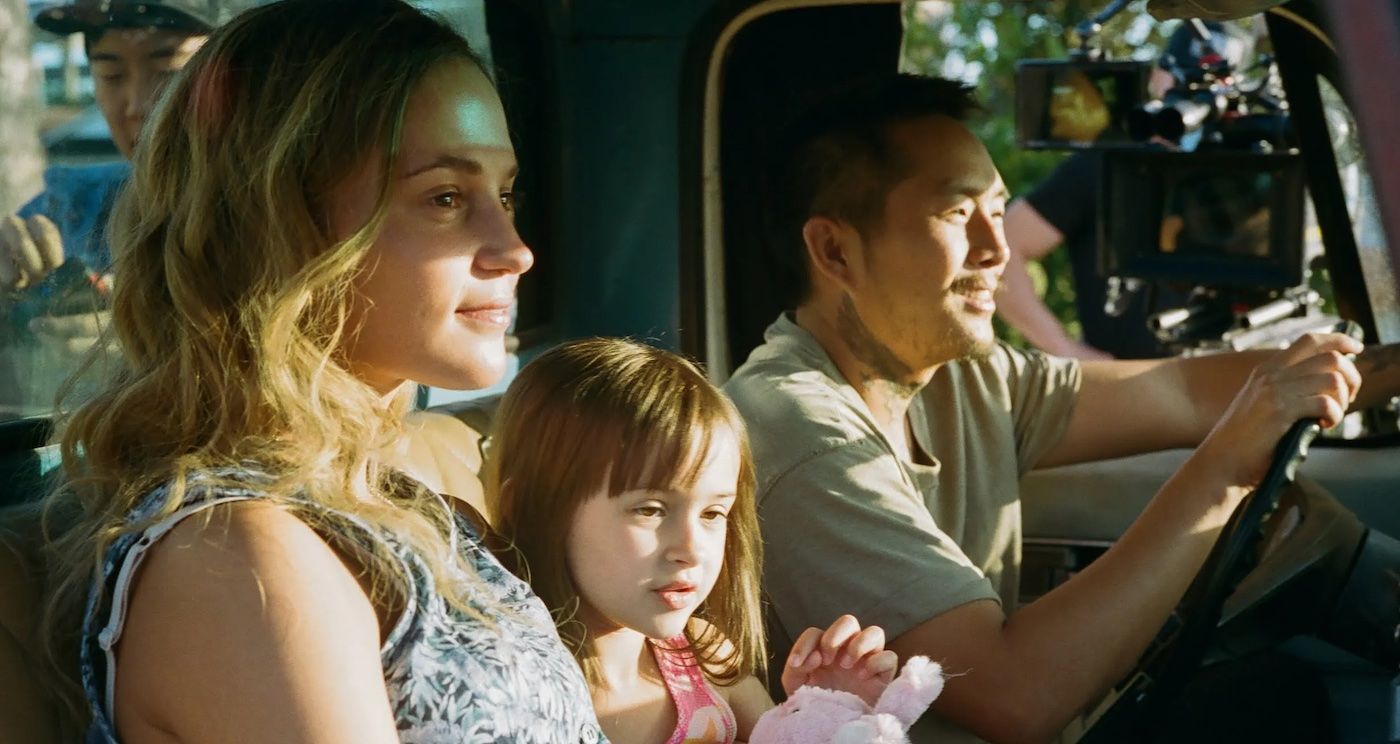Blue Bayou, written, directed by, and starring Justin Chon, is a story about a Korean adoptee, Antonio LeBlanc (Chon), who is struggling to support his wife, Kathy (Alicia Vikander), his stepdaughter, Jessie (Sydney Kowalske), and a baby girl on the way. After Antonio is attacked by a police officer in a supermarket in front of his family, he faces deportation back to Korea despite having lived in the US for almost 30 years. To make matters worse, Kathy's ex-husband and Jessie’s biological father, Ace (Mark O’Brien), feels Antonio is a hindrance to his relationship with his daughter, as Jessie clearly prefers her stepfather. But Antonio finds hope when he meets Parker (Linh Dan Pham), a Vietnamese refugee, who, along with her father, Quoc (Truong Quang Tran), endured tragic circumstances to stay together and who ultimately change the course of his family.
At its heart, this picture is about father and daughter relationships; the bonds formed between them, and how the fathers sacrifice themselves for the betterment of their daughters and to preserve their families by any means necessary.
 Dads Are Central to Blue Bayou
Dads Are Central to Blue Bayou
Blue Bayou centers around a dad, and so, it illustrates that fathers are central to a family and to the lives of their children. Antonio never had a stable father figure as his adoptive parents gave him up, and his foster father was an abusive alcoholic. Jessie’s father is barely in her life, and he watches how Jessie and Kathy suffer as a result. He shows his wife and daughter all the love and affection that he can and promises that he will never leave them. When Jessie questions whether Antonio will love her as much as the new baby, he tells her that he chose her and her mom, then lets her play hooky from school to hang out with him. These scenes show the father-daughter relationship as a special one. Jessie dyes her hair black to look more like her “dad.” He dyes his hair purple because it is her favorite.
Antonio Meets Parker and Quoc
Antonio and Jessie meet Parker in the hospital during Kathy's ultrasound. When they bump into each other again and Antonio gives her a tattoo, she invites Antonio and his family to a family party at her and her father's house. Antonio is immediately endeared by seeing Parker and her father together. Antonio finds himself wandering through her home and looking at pictures strewn about. In the pictures of her mother and brother, she explains that her father made the decision to split the family into two boats when coming to America. Parker explains there was a better chance that the family would survive that way. Her mother and brother perished on the journey.
At dinner, Quoc asks Parker to translate to Antonio that he has a “good face” and continues by saying that Korea and Vietnam have a lot in common: their people stay strong and are still here through wars and hard times. He asks Parker to translate and ask her father if he regrets splitting the family up on separate boats. “Never,” he replies. Quoc worked hard to give his daughter a life and is determined to see it through. The audience sees him push his own emotions aside to care for his dying daughter; expressing concern over her comfort, staying within arms’ reach of her, and clinging to every moment knowing that he will soon lose her.
Ace As a Father
When we meet Ace, it seems that being a father is simply a matter of biology to him. He is Jessie’s legal father, and he feels that fact is not being taken seriously. He does not even seem to be taking it seriously. He blames Antonio and Kathy for his lack of a relationship with Jessie, but also lacks regard for her when he confronts the family about the matter with his racist police partner, Denny (Emory Cohen), in tow. Even though Ace is not the one to make the matter a physical or legal one, if he had taken pause for what was best for his daughter, he would have handled the matter privately. It is only when he notices the fear in Jessie’s face that he tells Denny to stay out of his business with his daughter. But it is too late, and because of the scuffle, Antonio faces deportation.
Difficult Decisions
After Denny sabotages Antonio's trial that could have seen him be permitted to stay in the country, Antonio makes the heartbreaking decision that he must leave his family—at least for a while—to keep them together and safe. Antonio was determined to have a better life for his family than the one he had. When Parker’s father speaks of strength and the importance of family in Asian cultures, Antonio likely had a different idea of what strength looked like until he saw Parker and her father together. After learning their story, Antonio learns that there is more to fatherhood than providing and bonding. Fathers protect their daughters and preserve their families, even if it means separating them.
If he had never met Parker and Quoc, he likely would have allowed his family to leave with him. Their story inspires him to fight, and ultimately, make the heartbreaking decision to ask his wife and daughters to stay behind while he finds a safe place for all of them. He also decides to trust Ace, who is also trying to be a better dad, to take care of Jessie.
Ace stands in contrast to the other dads in the beginning: he just wants a relationship with his daughter for selfish reasons and perhaps even to spite Kathy. After he confronts Kathy at her job, he realizes that the reason Jessie idolizes Antonio is that Antonio was the father Ace wasn’t when he decided to walk out. He is challenged by his own selfishness. He finally realizes that the fighting and belligerence toward Antonio are harmful to his daughter, and he wants to rebuild his relationship with her. Ace realizes that without Antonio, he won’t have much of a relationship with his daughter and knows that as a police officer, he will have some pull in the court’s decision. He decides that the best way he can be a good father is to help Antonio, even if it means sacrificing whatever is left of their father-daughter relationship. He puts his differences aside and decides he will act as a character witness for Antonio to stay in the country. When he finds out what Denny has done, Ace turns him in to the authorities. Just like Antonio, by the end of the movie, Ace is just doing what he can to be a better father.



